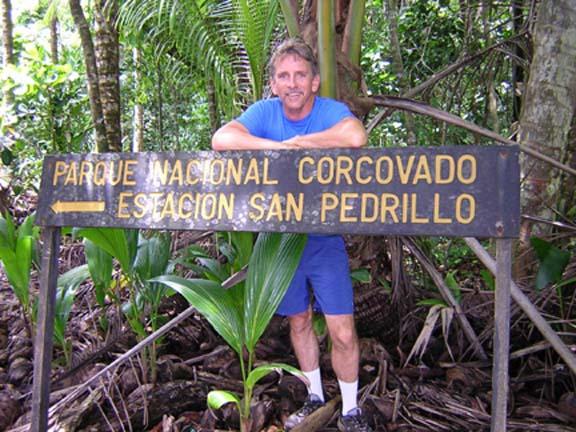It seems impossible to go a day without hearing about climate change, population and globalization. These issues may seem vague and distant, inclining anyone to question what they could possibly do about it. Rocky Rohwedder, like many others at Sonoma State believe the answer rests in sustainability.
“We’re doing a better job around food these days thanks to efforts at the Student Center. Probably the biggest impact we have is our carbon footprint — so saving energy related to transportation: more car pooling, biking, bus riding,” said Rohwedder, “and in buildings (turning lights off, closing doors and windows of dorm rooms and classrooms, and purchasing the most energy efficient computers and copiers) would all help. We should have solar electric on the roofs of all of our buildings, not just a few.”
Rohwedder is the Chair of the Department of Environmental Studies and Planning and has worked in many projects dealing with sustainability all around the world utilizing the opportunity of Semester at Sea to study innovative solutions. His lecture reflected a more in-depth version of his TED Talk from May 2012 at UC Irvine.
It’s not about “refried environmentalism,” instead; the idea of sustainability comes from the realization that the entire world is interconnected. The effects of a lifestyle on one side of the planet will ultimately affect everyone else. This being said, the idea of leading a sustainable lifestyle could even help those impoverished in still-developing countries. Programs that currently exist and were highlighted in the lecture include “Solar Sisters” which provide solar lanterns instead of the previously common kerosene ones and the usage of solar cookers all around the world.
“We must appreciate that what we consume and how we behave has consequences that affect everyone on the planet. Choices made in Asia affect our lives our well being in Northern California, and what we do here has consequences in Europe and in Africa. Climate change affects us all,” said Paul Draper, director of sustainability at Sonoma State.
Data from National Geographic shows that in the mid 1970s the human population started to surpass the Earth’s capacity. Geographers are able to determine where the world is most populated as well as where most of the Earth’s resources are being used and the results are not surprising. Rohwedder believes the answer to rest in the need for a balance of the planet and people, which is really what sustainability is all about.
“Sometimes just by asking the right question, really imaginative solutions coming forward from individuals who care and are looking for ways to contribute. I don’t think demanding or pointing fingers is very effective, but I do think helping to raise awareness and doing sustainable things both big and small day in and day out helps all of us to do better,” Draper said.
“Do One Thing Today” or DOTT is a program to encourage sustainable practices that is currently in place at Sonoma State. The campaign, which launched originally in February 2014, is student based and centers around the interest of the economy, environment and culture. DOTT takes pride in the ‘green’ buildings and classrooms on campus as well as encouraging students to develop a sustainable lifestyle based on the idea that they could do one thing a day towards a better future.
“I’ve seem some big changes at Sonoma State over the years. In some ways, we were leaders in this arena and should celebrate our past accomplishments. In other areas, we have a long way to go. Thanks to dedicated and forward thinking students, leaders as well as the efforts of some staff, faculty and administrators — I think Sonoma State stands ready to regain that leadership role in the years ahead,” Rohwedder said.
The university dedicates efforts to increase and provide sustainable resources, but evidently this is still the beginning.



































